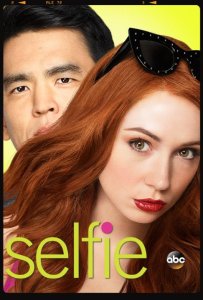What makes up a character? Traits. What are traits? Good or bad points found in a character. Good character traits (meaning those that are positive), are easy to come by. We are taught from a young age to look at the perfections, the good in others. This includes our characters. Unfortunately this means that so often character flaws are left forgotten. Flaws are just as important as talents and perfections: they make the character much more human and easy to connect with.
What flaws are most commonly seen? Depression certainly is one, so is social ineptitude. Arrogance is seen here and there, as is trouble-making (see bad boys). These are by no means bad flaws, though they are seen often and can be seen as dull and cliche as opposed to finding something different: Superstitious, apathetic, overconfident characters are hardly ever seen. What if the character is paranoid? Overprotective? Illiterate? Every person has those traits that could stand for some improvement, whether they recognize it themselves or not. You can either go for flaws that make you think outside the box, or you can stick to known entities. The good part about sticking to the sometimes over-used traits (whether positive or negative), is that as a writer you have plenty of material to pull from. The flip-side is that you have to try to write it in a different light, or make it somehow original in your character (unless your story is about how your character is actually very average, which is one tactic you can use.
Flaws can be real or not real. A character can perceive a trait in themselves that isn’t actually there, or perhaps they just don’t see the positive of a trait (like practicality, which can be seen as a double-edged sword). These approaches to your characters can provide points to grow and develop from, which can create a great sub-plot. Never forget that flaws are fluid: they can either be tackled by the character knowingly or unknowingly, they don’t need to be resolved at all if you don’t want them to be.
New flaws can surface. After being incarcerated, for instance, perhaps your character becomes claustrophobic. Maybe they always scarf up their food because they don’t know if it will be taken away or not. Maybe they’re more outwardly violent now, or withdrawn. Any number of outcomes can come from a single plot point. Giving your character a reaction to the situations they have been put in means that they are human and easier to connect with.
Flaws can come in many forms. Physical, emotional, mental, etc. Phobias, mental illnesses, disabilities—these all count towards flaws. Your character doesn’t need to necessarily view them as flaws, they could see the silver lining in their predicament, if they’re even aware of the flaw. Flaws help to define and differentiate your characters. Diversify your characters and their flaws. Everyone copes differently, even if they have the same problem (depression, for instance). Write your characters with thought and consideration. They deserve it and so does your writing!

